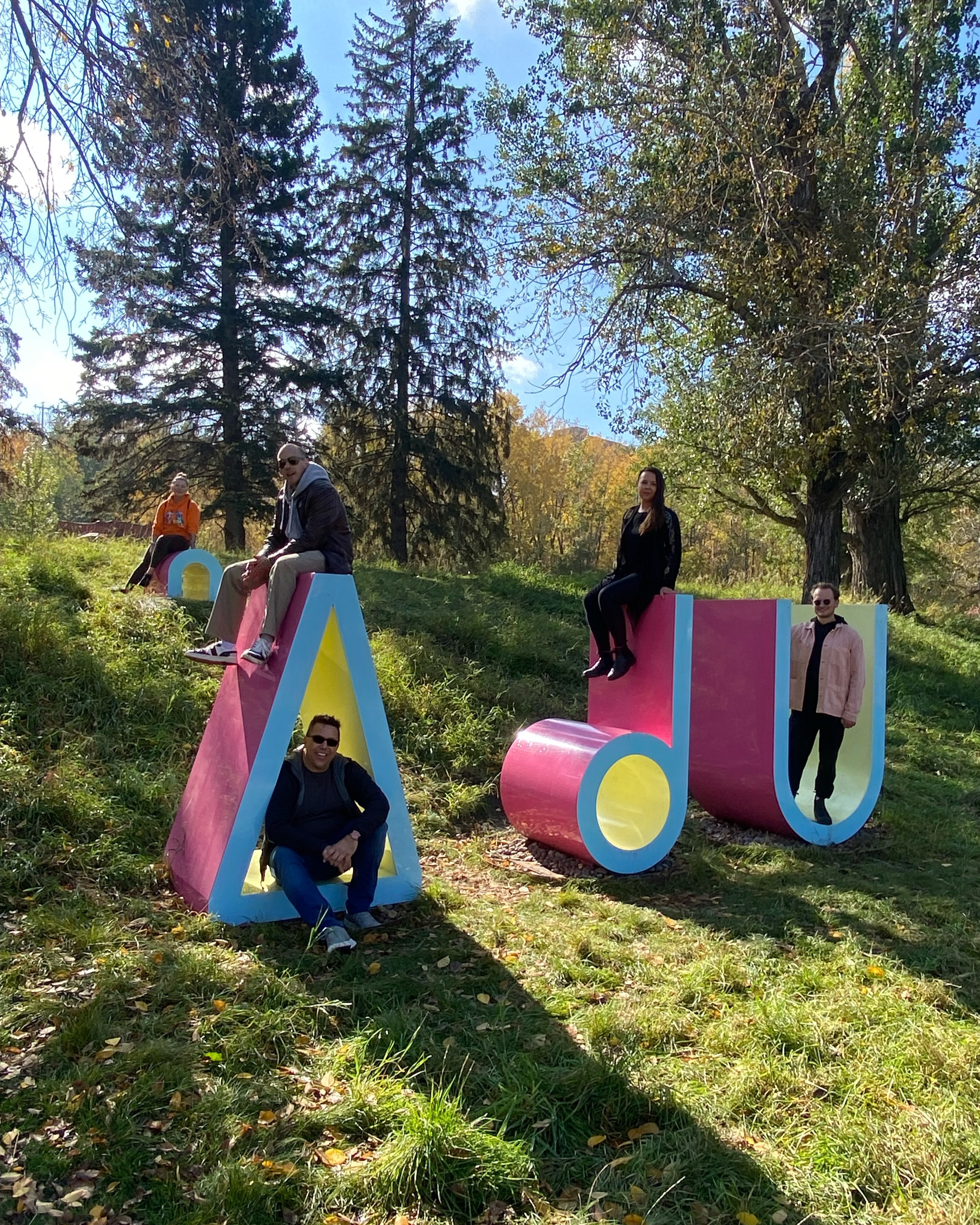Conference showcases the importance of Indigenous Perspectives in business
Indigenous business students recently connected at the University of Alberta for four days of relationship building, knowledge sharing and critical dialogue.
The Indigenous Business PhD Students’ Mini Conference and Gathering: amiskwaciy ran from September 28 to October 1, and brought together 11 Indigenous doctoral students from business schools across Canada with faculty, staff and students from the Alberta School of Business (ASB). This is the first time the U of A has hosted a conference of this kind.
The conference aimed to strengthen Canada’s community of Indigenous business researchers by helping them connect with local Indigenous artists, members of the 2SLGBTQ+ community, and the land of amiskwaciy. Attendees also presented and took part in talks about research methods and theories.
According to Teddy Carter, a U of A PhD candidate with the ASB who organized the event, there are not many Indigenous business school students in Canada. As such, the conference aimed to increase the academic network of Indigenous students in the country, create opportunities for collaborations and hold a respectful space for Indigenous Ways of Knowing.
“We believe that these Ways of Knowing are innately valuable,” she says. “We have an opportunity to build that community.”
 Attendees took part in several events throughout the conference inviting U of A faculty members to watch their discussions and research presentations, listening to Indigenous professors from across Canada speak over Zoom about the importance of their work, as well as the opportunities and challenges they have experienced. The group attended events hosted by the Indigenous Artist Market on the National Day for Truth and Reconciliation, visited a local 2SLGBTQ+ space, and made a relationship with the land during a walk through the River Valley.
Attendees took part in several events throughout the conference inviting U of A faculty members to watch their discussions and research presentations, listening to Indigenous professors from across Canada speak over Zoom about the importance of their work, as well as the opportunities and challenges they have experienced. The group attended events hosted by the Indigenous Artist Market on the National Day for Truth and Reconciliation, visited a local 2SLGBTQ+ space, and made a relationship with the land during a walk through the River Valley.
“We tried to do activities that really encompassed the mind, the body, and spirit and the emotions,” Carter says.
Gil Anderson, Indigenous programs coordinator with ASB’s Office of Education, helped coordinate the logistics of the event. He notes that Indigenous peoples contribute more than $32 billion to Canada’s economy — and it’s poised to grow.
“Indigenous people are not strangers to commerce. I say this to people all the time: There were trade routes from the Arctic to the Isthmus of Panama, and from the Pacific coast to the east coast,” Anderson says. “There’s a lot of really interesting history and perspectives there.”
However, he adds that there are currently few people studying in the field. Growing the number of Indigenous business scholars is important because there’s a lot of potential to investigate colonial power structures in business and because some Indigenous perspectives place a heightened importance on community, entrepreneurship and small businesses in the sector.
According to Anderson, more work needs to be done to teach Indigenous perspectives in universities, and to teach the cultural norms of Indigenous peoples to ensure they feel comfortable in the workplace. Finally, he says that business faculties should work to bring in more Indigenous students and faculty members, and that events like the recent conference can help with this.
“If we want to attract more Indigenous students to college, they need to see themselves here. This needs to be a comfortable place,” Anderson says.
Subscribe to UAlberta Business
Become part of our community. Get the latest news and event information from the Alberta School of Business in your inbox every month.